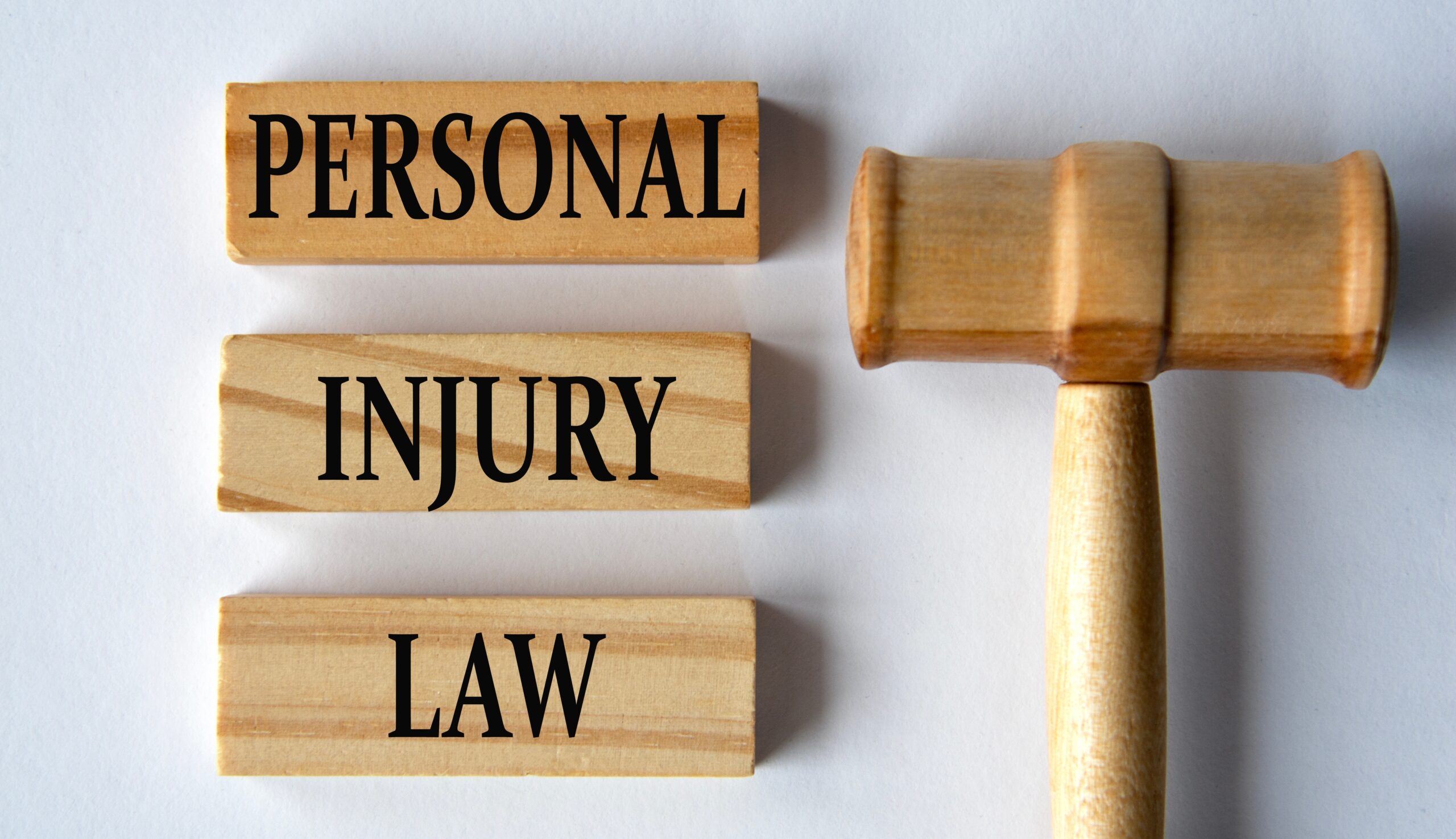How Insurance Companies Try to Avoid Paying Personal Injury Claims
The Three D’s: Delay, Deny, Defend
Insurance is a very profitable business. And it stays that way by taking in much more money than they payout. A single health insurance company can make billions a year in profits. The auto insurance industry as a whole brings in
tens of billions of dollars in profits each year. And most insurance companies, no matter what type of coverage they sell, are seeing profits
rise even more due to the 2020 pandemic.
These profits often come off the backs of people that pay their premiums faithfully for years and now really need their insurance carrier to carry out their end of the deal. In order to maintain these profits, specifically in the auto insurance sector, three common tactics are used by insurance companies: delay claims, deny claims, and defend against claims.
Insurance Tactic #1: Delaying Injury Claims
The first tactic insurance companies use is to try delaying the injury claim as much as possible. Delaying the claim makes it frustrating for the claimant and it allows evidence to deteriorate.
Frustrating the Victim into Quitting
Receiving compensation is rarely straightforward. Insurance companies sometimes ask for complex forms and details they don’t actually need to process your claim. They know you’re unlikely to have this information readily available. Consequently, you’ll end up wasting time and energy tracking it down. Once submitted, they might make another request or say your documents are incomplete. Insurance companies may also keep you tied up on the phone for what seems like an eternity. Some may pass you around from department to department in search of an answer to a simple question.
These exhausting tactics are designed specifically to delay your claim long enough that you abandon your claim or settle for pennies on the dollar.
Allowing Evidence to Deteriorate
Sometimes, insurance companies will delay a claim in the hopes that some of the evidence will become murky or deteriorate. This doesn't mean that the evidence actually becomes broken or degraded. Instead, it means that the evidence becomes harder to find. Take for example somebody who witnessed the case. If they were to be contacted one week after the accident, they would probably be more than happy to give a statement about what they saw. If that person is contacted six months later, not only have they probably forgotten most of the details, but they probably aren't interested in dealing with it anymore.
[Read:
What To Do After a Car Accident]
Statute of Limitations
Over the years, our law firm has been contacted by many accident victims who unknowingly allowed the statute of limitations to expire. They thought they were protected by setting up the claim with the insurance carrier and did not realize that a lawsuit needed to be timely filed. The insurance adjuster, who kept delaying and delaying, never informed the claimant of the statute date, which is 2 years in most cases in Illinois. However, there are shorter time limits for certain defendants, so it is best to contact a personal injury lawyer immediately.
Insurance Tactic #2: Denying the Claim
Contesting Liability
It is not uncommon for an insurance adjuster to dispute or deny liability, even
when their driver obviously is at fault. Or, they may only admit partial liability when it’s unreasonable to do so. This tactic is more common with substandard insurance carriers.
For example, our office recently received a denial letter from an insurance carrier. The accident occurred when the defendant
failed to yield coming out of a stop sign. Our client had no stop sign and had the right-of-way. At the scene, the defendant admitted fault to the police and was ticketed. At a later date, the defendant changed her story and is now claiming that our client was speeding and failed to keep a proper lookout.
The insurance carrier is now denying the claim due to their insured changing her story. The adjuster knows they are going to have to pay on the claim later in court. However, they are using the defendant’s obvious lie as an excuse to delay paying on the claim.
Minimizing Injuries
Insurance adjusters are always looking for ways to downplay your injuries, make them sound less severe, or even make it look like the injury is non-existent.
One tactic of denying a claim by downplaying an injury. This can involve tricky questions that make it seem like you are not as injured as you say you are. They may also involve a medical expert who claims that your medical records do not reflect the amount of pain that you claim on your end.
Insurance companies will often use pre-existing conditions to deny claims as well. They may acknowledge that you were in a car accident and
received injuries. Reach out to a
Chicago car accident lawyer. But they may try to minimize those injuries by pointing to a pre-existing condition or an injury that happened in the past. In some cases, this past injury has nothing to do with the new injuries. Nonetheless, insurance carriers know that they can use this tactic to deny claims.
These tactics allow them to deny that their client caused your injury. If they can’t fully deny your claim, they’ll downplay the costs associated with your injury. For instance, they may only offer enough to cover your immediate expenses. In reality, lots of injuries will have costs associated with them long after the first few medical bills are paid. Some injuries will require rehabilitation appointments, while others might require another surgery a few years later. These future medical events should be accounted for when
calculating a proper settlement amount. To protect the value of your claim, it’s best to have a personal injury attorney representing your best interests.
Your Own Actions
Another way insurance companies deny claims is by saying your injuries aren’t serious because you didn’t
seek immediate medical attention. Insurance companies know that there are many reasons why claimants do not seek medical attention right away. Yet they still use this as a common way to deny personal injury claims. This is why it is so important to seek medical attention as soon as possible, even if you are unsure of the severity of any injuries. Not only does immediate treatment prevent injuries from worsening, but it also prevents insurance carriers from using their common tactic to deny your claim.
Similarly, insurance companies will point to a claimant's failure to file a police report right away as another reason to deny a claim. Although it does make it harder to prove another party caused your injuries, it is not a reason to completely deny a claim.
These tactics have no end. In fact, it is very common for insurance companies to
go to a claimant’s social media page in order to find proof that they are not injured. A simple photo of you at a wedding or a family vacation at the beach can be used against you to argue that your injuries are not that serious.
Insurance Tactic #3: Defend Against the Claim
Once all the delaying and denying tactics have been exhausted and it is clear that the insurance company will have to pay on the claim, their next tactic is to defend against the claim as much as possible. Again, the idea is to
keep any potential settlement or verdict very low. Insurance companies are mega-corporations and have millions of dollars to pay lawyers to defend their claims. Because of this, everyday individuals are often at a huge disadvantage when they face insurance companies in negotiations or court.
Using Their Power
Insurance companies have lawyers on staff and contract with outside law firms and investigators. These lawyers and investigators have only one responsibility. They will try to exploit every legal loophole to help the insurance company defend their position and pay little to nothing for your claim. Insurance companies know that many accident victims will accept these results without question. However, you don’t have to accept a lowball offer. An experienced personal injury attorney can help you to challenge the insurance carrier.
Shifting Fault
Insurance companies often try to shift blame so that they can claim that you are at-fault for the accident and the cause of your own injuries. This is one of many reasons why it is critical to have an attorney representing you and working on your case from the very beginning. Even if you do share some responsibly, that does not necessarily invalidate your claim. As long as you are
no more than 50% at-fault, you can still collect from the other side’s insurance company.
Before you have a lawyer, an experienced insurance adjuster might tell you that you have to give them a recorded statement. And if you comply, they often ask unfair questions. For example, instead of asking how the accident happened, they might ask what you could have done to avoid the accident. A statement is not required, so don’t give one without the advice of your lawyer.
Cases can also become complicated when insurance companies shift blame to a completely different party. For example, insurance companies may say that a parts manufacturer is responsible for the car accident or that the company who loaded the semi truck's trailer is actually the responsible party. This tactic of shifting fault can be pulled out late in the game. And it often confuses those who are not represented by a qualified personal injury attorney.
Why Don’t Insurance Companies Want to Pay?
When insurance companies avoid paying, they make more money for themselves. Their business model may partially rely on delaying, denying, and defending claims. Denying a claim means the company doesn’t have to immediately pay out what could be tens or hundreds of thousands of dollars. Likewise, minimizing valid claims means they still pay some, but are saving money compared to if they had paid fair value. When companies know they have to pay a sizable settlement, they may resort to expensive law firms to defend them in court. They do this not because they truly believe that their company holds no responsibility for the accident. They take this approach because a good legal team–though expensive–is sometimes less expensive than immediately paying a settlement. Further, it allows the carrier to hold on to their money for as long as possible.
The point is, insurance companies are not on your side. Despite the jingles, in our opinion you are not always in good hands, you might not get treated like a good neighbor. Based on our experience, insurance adjusters have one job and one job only. They try to keep their employer's profits high and costs low. This is why it is imperative that you hire a qualified personal injury attorney to advocate for maximum compensation for your injuries.
Contact an Experienced Chicago Attorney to Fight for You
If you or a loved one has been injured because of someone else’s negligence, speak with an attorney at Abels & Annes today. Do not fall victim to the delay, deny, and defend tactics of insurance companies. Instead, let our experienced attorneys fight insurance companies for you and get you the compensation you deserve. Our initial evaluations are always free.
Contact us online or by phone at
312-924-7575.
David Abels
Partner
David Abels has carved a niche for himself in the personal injury law sector, dedicating a substantial part of his career since 1997 to representing victims of various accidents. With a law practice that spans over two decades, his expertise has been consistently recognized within the legal community.
Author's Bio



